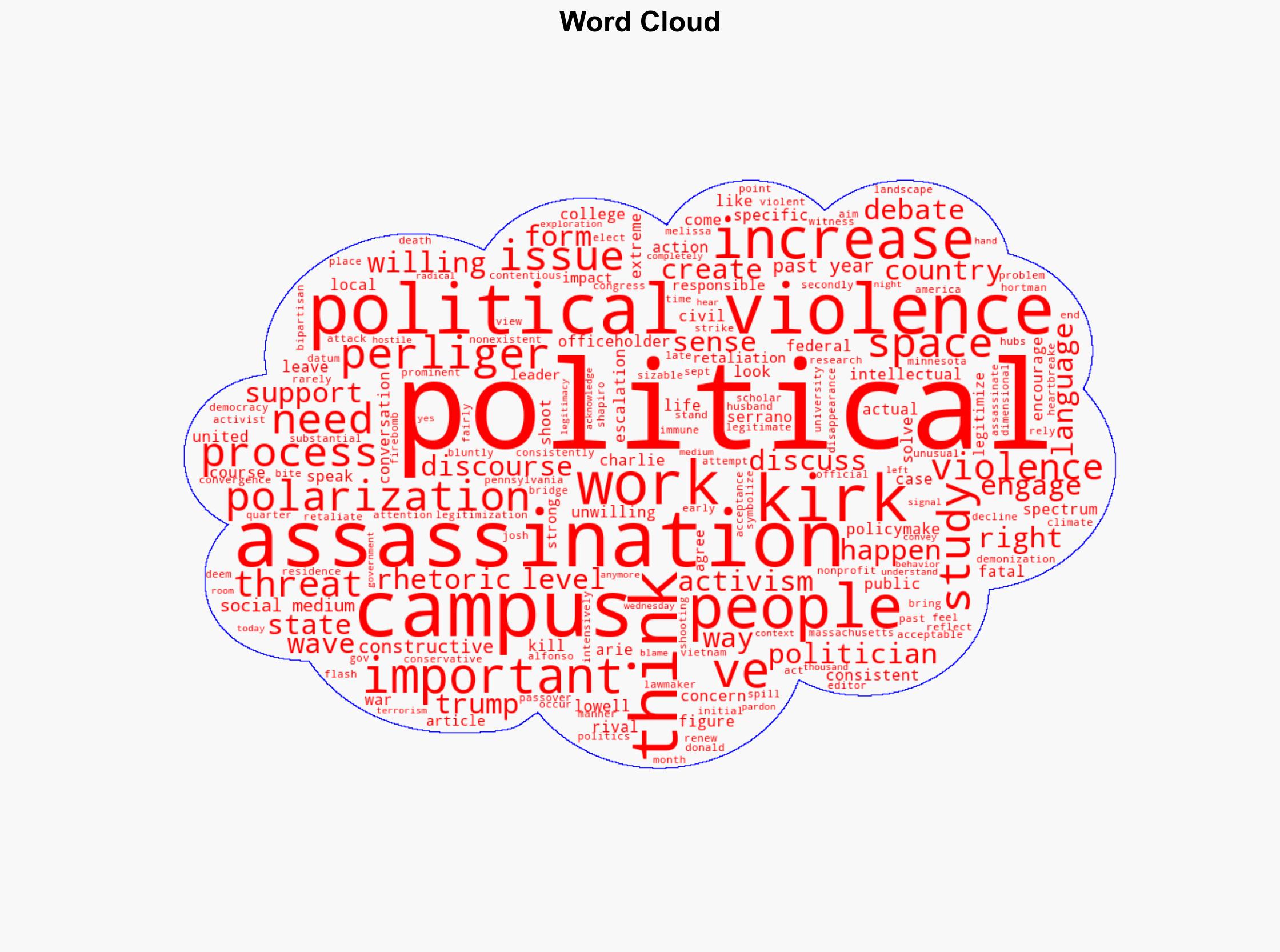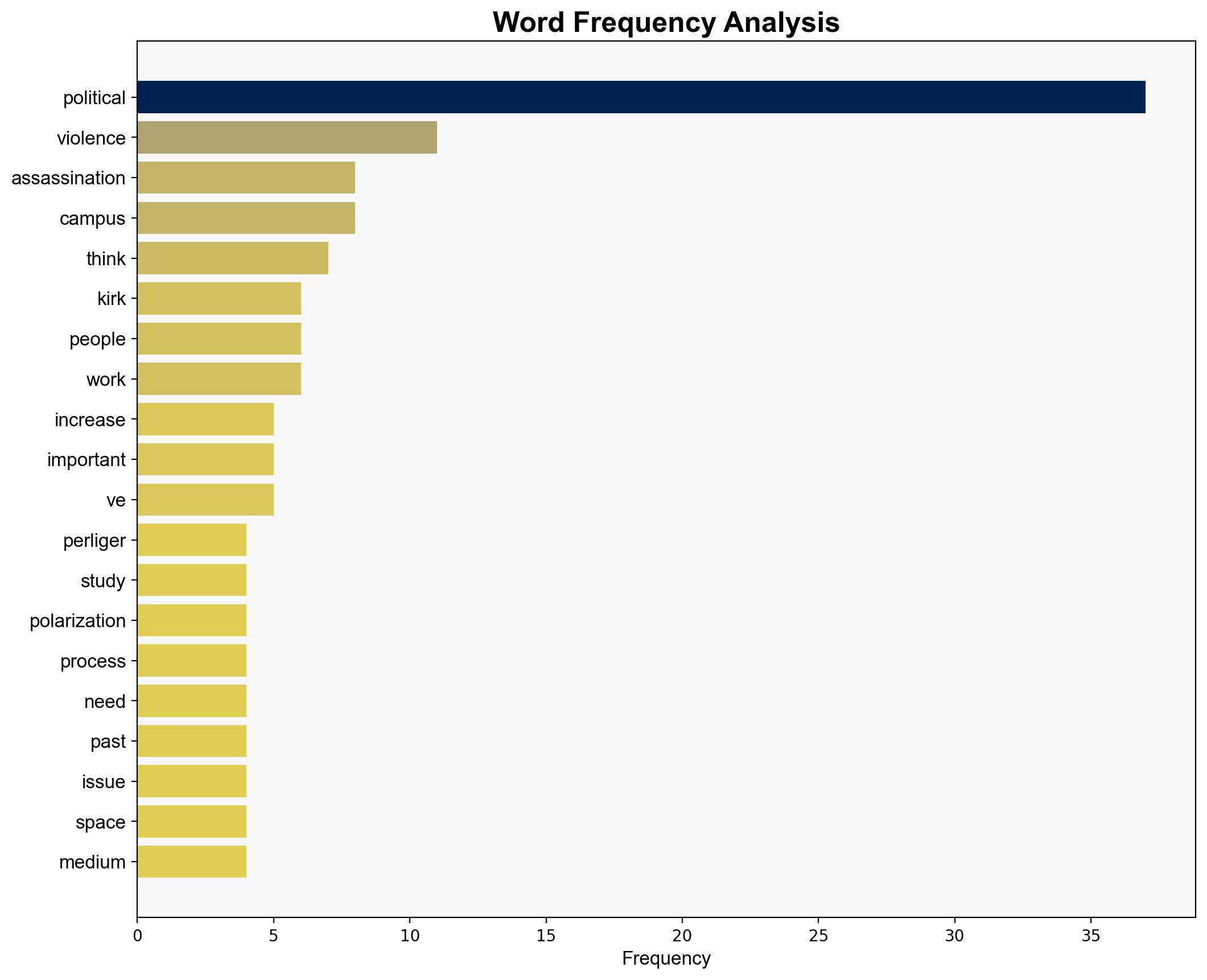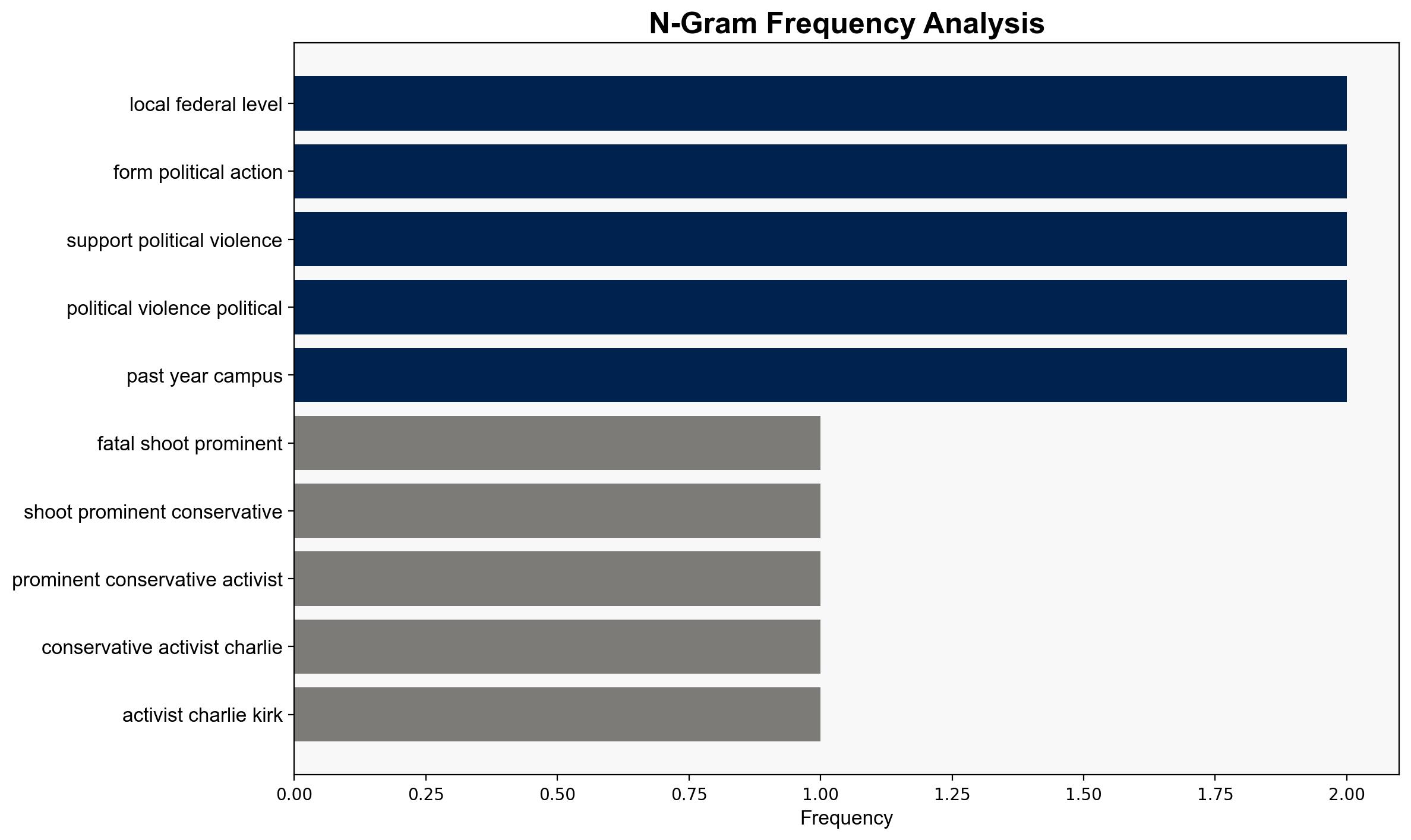This will not end here Scholar warns Charlie Kirks killing could embolden political violence – Salon
Published on: 2025-09-13
Intelligence Report: This will not end here Scholar warns Charlie Kirks killing could embolden political violence – Salon
1. BLUF (Bottom Line Up Front)
The assassination of Charlie Kirk could potentially escalate political violence in the United States, with a medium confidence level in this assessment. The most supported hypothesis suggests that Kirk’s killing may serve as a catalyst for further political polarization and violence. It is recommended to enhance monitoring of political discourse and increase security measures for high-profile political figures.
2. Competing Hypotheses
1. **Hypothesis A**: Charlie Kirk’s assassination will embolden political violence, leading to increased polarization and retaliatory acts across the political spectrum. This hypothesis is supported by historical patterns of political violence escalation following high-profile assassinations and the current climate of political polarization.
2. **Hypothesis B**: The assassination is an isolated incident with limited impact on broader political violence trends. This hypothesis considers the possibility that the event does not significantly alter the trajectory of political violence, which may be influenced by other factors such as economic conditions or legislative actions.
Using ACH 2.0, Hypothesis A is better supported due to the existing data on increased political violence and polarization, as well as expert analysis indicating a trend towards legitimizing violence as a political tool.
3. Key Assumptions and Red Flags
– **Assumptions**: Both hypotheses assume that political violence is influenced by high-profile events and public discourse. Hypothesis A assumes a direct causal link between the assassination and increased violence.
– **Red Flags**: Lack of comprehensive data on the motivations behind the assassination and potential biases in attributing causality to political rhetoric.
– **Blind Spots**: Potential underestimation of other factors contributing to political violence, such as economic instability or foreign influence.
4. Implications and Strategic Risks
– **Patterns**: The assassination may signal a shift towards more frequent and severe acts of political violence, potentially destabilizing political processes.
– **Cascading Threats**: Increased violence could lead to heightened security measures, impacting civil liberties and public trust in government institutions.
– **Escalation Scenarios**: Retaliatory violence could spiral, leading to a breakdown in political discourse and increased division within society.
– **Dimensions**: Economic impacts could include decreased investment due to perceived instability. Cyber threats may increase as groups exploit tensions. Geopolitically, adversaries could leverage domestic unrest to weaken U.S. influence.
5. Recommendations and Outlook
- Enhance intelligence gathering on political groups and rhetoric to identify potential threats early.
- Increase security for political figures and events, particularly in contentious regions.
- Promote initiatives aimed at reducing polarization and fostering dialogue across political divides.
- Scenario Projections:
- **Best Case**: Effective interventions reduce violence and restore political discourse.
- **Worst Case**: Continued escalation leads to widespread unrest and institutional instability.
- **Most Likely**: Sporadic incidents of violence with gradual increases in polarization.
6. Key Individuals and Entities
– Charlie Kirk
– Arie Perliger
– Donald Trump
– Josh Shapiro
– Melissa Hortman
7. Thematic Tags
national security threats, political violence, polarization, counter-terrorism, domestic security




